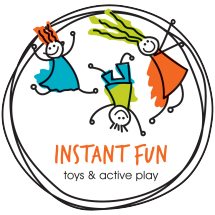
Benefits of Play
The Importance of Play for Children's Development
Play is essential for children's growth and development. It helps them learn valuable skills and knowledge, explore their interests, express their creativity, and develop their social and emotional skills.
Cognitive development: Play helps children develop their cognitive abilities, such as problem-solving, creativity, and reasoning. When children play, they are constantly learning and experimenting. They are trying to figure out how things work and how they can use objects to achieve their goals. This process of exploration and discovery helps to build their cognitive skills.
For example, a child who is playing with blocks might try to build a tower. At first, they might just stack the blocks randomly. But as they continue to play, they will start to figure out how to make the tower taller and more stable. This requires them to think about the weight of the blocks, the way they are stacked, and how to make the tower stay up.
Social development: Play helps children develop their social skills, such as cooperation, sharing, and communication. When children play together, they have to learn to work together to achieve a common goal. They also have to learn to share toys and space, and to communicate their needs and wants to others. This process of social interaction helps children to develop the skills they need to interact successfully with others in the world.
For example, a group of children who are playing on a playground might decide to play tag. In order to play the game, they have to agree on the rules and how the game is played. They also have to learn to take turns being "it" and to cooperate in order to tag each other.
Emotional development: Play helps children develop their emotional skills, such as self-regulation, coping skills, and resilience. When children play, they have the opportunity to express their emotions in a safe and constructive way. They can learn how to manage their anger, sadness, and frustration in a healthy way. Play can also help children to develop coping skills for dealing with difficult situations.
For example, a child who is feeling angry might play a game of tag to release their energy. Or, a child who is feeling sad might play with a doll to act out their feelings.
Physical development: Play helps children develop their physical skills, such as coordination, balance, and strength. When children play, they are constantly moving and using their bodies. This helps them to develop the physical skills they need to participate in active games and sports.
For example, a child who is playing on a swing is developing their balance and coordination. And, a child who is playing tag is developing their speed and agility.
Creativity: Play helps children develop their creativity. When children play, they are free to use their imaginations to create new worlds and scenarios. They can experiment with different ideas and possibilities. This process of creativity helps children to develop their problem-solving skills and to think outside the box.
For example, a child who is playing with a toy car might imagine that it is a race car and make it go around a pretend racetrack. Or, a child who is playing with blocks might build a pretend house.
Play is essential for children's overall development. It provides them with the opportunity to learn and grow in a safe and fun environment. By providing children with opportunities to play, parents and caregivers can help them to reach their full potential.
Here are a few tips for encouraging your child to play more often:
- Provide them with a variety of play materials. This could include toys, games, books, and art supplies.
- Set aside time each day for play. Make it a regular part of your child's routine.
- Encourage your child to play with other children. This will help them to develop their social skills.
- Get involved in your child's play. This will help them to feel supported and loved.
Play is a vital part of childhood. It is a time for children to learn, grow, and explore. By providing children with opportunities to play, we can help them to reach their full potential.
.

